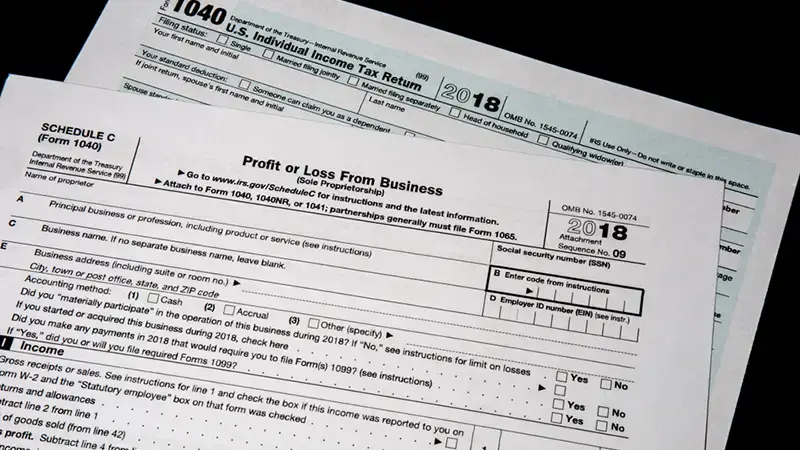2023-2024 Tax Planning Guide for Individuals
In today's rapidly changing economic landscape, tax planning has become an indispensable tool for individuals and businesses alike. With the rise in...
Capital gains taxes often appear complex and daunting, but with a fresh perspective, understanding the nuances of this tax can unlock potential savings for investors and homeowners alike. Join us in unraveling the intricacies of capital gains tax, its rates, and strategies to minimize its impact on your finances.
Short Summary
A capital gain happens when you sell something valuable for more than you paid for it. That “something” could be:
The IRS looks at the difference between your sale price and your adjusted basis (usually what you paid, plus things like fees or improvements). If you sell for more, you have a gain. If you sell for less, you have a loss.
Capital gains taxes matter because they directly affect how much money you keep after selling investments. For:
Not all gains are taxed right away.
The length of time you own an asset determines how it’s taxed:
This means that simply holding onto your investments longer can lower your tax bill.
For assets you've held more than one year, the federal tax rates for long-term capital gains in 2025 are:
Additionally, for high earners, there may be a 3.8% surtax (Net Investment Income Tax) on top of those rates.
You may owe capital gains tax if:
If you don’t sell, you don’t owe. But if you realize a gain, the IRS expects its share.
Here are some practical ways to lower or avoid capital gains taxes:
One of the easiest ways to sidestep capital gains taxes is by using retirement accounts:
Selling property comes with its own rules:
If it’s your main home and you lived there 2 of the last 5 years, you may exclude up to $250,000 ($500,000 married) in gains.
It’s important to note that this exclusion does not apply to investment properties or second homes, which are still subject to capital gains taxes. To minimize capital gains tax on a second home or rental property, consider establishing it as a primary residence before selling it.
Investment properties don’t qualify, but strategies like installment sales or 1031 exchanges can help defer taxes.
Cryptocurrency sales are subject to capital gains tax, with rates depending on the holding period and the taxpayer’s income. Similar to other capital assets, short-term capital gains on cryptocurrency are taxed at the same rate as ordinary income, while long-term capital gains are taxed at a lower rate. Therefore, holding onto your cryptocurrency investments for more than a year can result in lower capital gains tax rates.
To calculate capital gains tax on cryptocurrency, you must determine the difference between the sale price and the cost basis of the asset, and apply the appropriate tax rate based on the holding period and income. By understanding the tax implications of cryptocurrency investments and applying strategies to minimize capital gains tax, you can optimize your investment growth and reduce your tax burden.
Generally, you pay capital gains tax when you file your yearly tax return. However, if you make big profits, you may need to make quarterly estimated payments to avoid IRS penalties.
By accurately calculating your capital gains tax liability and making timely payments, you can ensure compliance with IRS requirements and avoid potential financial penalties. Consult with a tax advisor or financial planner to determine the best course of action based on your unique situation and tax obligations.
The NIIT is a 3.8% tax imposed on certain investment income for individuals, estates, and trusts. It applies to individuals with modified adjusted gross income (MAGI) above specific thresholds and certain types of investment income such as interest, dividends, and capital gains from investments such as stocks, bonds, mutual funds, and real estate investments (unless derived from an active trade or business), rental and royalty income (unless derived from an active trade or business) and income from passive activities, such as partnerships, S corporations, and limited liability companies (LLCs). The NIIT is calculated as 3.8% of the lesser of your net investment income or the amount by which your MAGI exceeds the applicable threshold.
At H&CO, our team of bilingual tax professionals has over 30 years of experience helping individuals, families, investors, and businesses manage capital gains and other complex tax matters. Whether you’re selling a home, cashing out investments, or navigating international tax rules, we’re here to guide you.
With offices in Coconut Grove, Coral Gables, Aventura, and Fort Lauderdale, our CPAs are ready to help with all your tax planning and preparation needs.
Capital gains tax is a tax imposed on the profit earned from the sale or disposal of certain assets. Taxpayers usually pay capital gains tax on the profit at the long-term capital gains tax rate or at the short-term capital gains rate or ordinary income tax rate, depending on the holding period of the asset.
The specific amount of capital gains tax depends on factors such as income level, tax rates, and the duration of holding the asset. It is advisable to consult tax regulations or a tax professional for accurate information.
Some methods to potentially minimize capital gains tax on real estate include utilizing a 1031 exchange, investing in Opportunity Zones, or considering a charitable remainder trust. Each strategy has specific requirements and potential implications, so professional guidance is advised.
Avoiding taxes on short-term gains can involve strategies such as offsetting gains with capital losses, utilizing tax-advantaged accounts, or structuring investments as long-term to benefit from lower capital gains tax rates. Consulting with a tax professional can provide tailored guidance based on your circumstances.

In today's rapidly changing economic landscape, tax planning has become an indispensable tool for individuals and businesses alike. With the rise in...

There is often curiosity surrounding the tax benefits, implications, and motivations behind establishing a charitable remainder trust. In this...

Last updated May 5, 2025.
